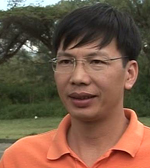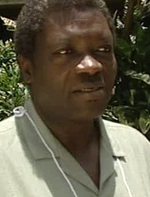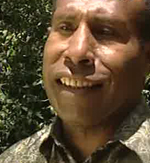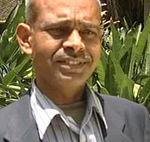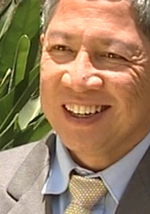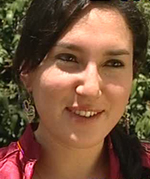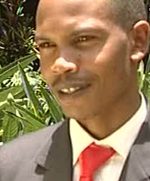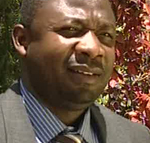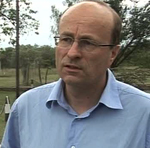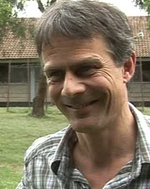REDD+ Country Progress… In Their Own Words
-----------------
| REDD+ Country Progress… In Their Own Words
At the recent Policy Board meeting in Nairobi, country representatives, Indigenous Peoples and Civil Society organizations, and donors spoke to the UN-REDD Programme about their commitment to REDD+ readiness and the value of their partnership with the Programme. Below are excerpts from some of those interviews. Pilot Countries Pham Manh Cuong, Viet Nam
“In Viet Nam we think that whether REDD is successful or not really depends on how the benefit sharing system is established. So we need to establish a transparent benefit sharing system and under the support of the UN-REDD Programme, we have reviews of the past and current national policy on the payments in the forestry sector, and we also propose a benefit sharing system for REDD implementation so we do hope that after the first phase- capacity building- that we still get the support from the UN-REDD Programme as a development partner to do the pilot phase of the benefit sharing system. “I think that participating in the UN-REDD Programme is a very good example in showing how the UN agencies work together…. (the Programme) provides Viet Nam the timely and valuable support for the preparation of the REDD readiness so it’s very useful for us.” |
|
|
Felician Kilahama, Tanzania
“Currently now in Tanzania, we have signed the document, we did the launching of the Programme itself. Now we are moving into implementation of the activities… we want to put emphasis on the awareness-raising. Sensitization, education and awareness-raising. Unless people understand what we want to do, you can’t get the real support. So the idea is to engage them, then they listen… civil societies, the NGOs… local communities- people living adjacent to the forests- they are very key in this process.” “We have lacked the financing, the technical support, the capacity-building, and this is what the UN is now coming in to do, to reduce those gaps. They are not coming up with a new project, a new idea or whatever. They are helping us to achieve our own objectives.” |
|
|
John Michael, Papua New Guinea
“The institutional framework is now taking shape. We have been working closely with other stakeholders to come up with a framework… we are currently developing our climate compatible development program strategy. So that is moving pretty well and of course we are engaged with all our stakeholders to drive this forward. And I think basically now, with all of this in place, the direction and future focus we are looking at is there.” “UN has been a key partner in running most of these programmes in parallel with the others we’ve been running, and we have been working closely together to achieve this end so UN-REDD… has been partners with us to run this program.” |
|
|
New members Ram Asheshwar Mandal, Nepal
“There are two challenges to implement the REDD in Nepal nowadays. First one is related to the MRV, monitoring, reporting and verification and the second one is how to drawn the baseline that is related to different scenarios, so I think the UN-REDD can play a key role in supporting these concerns so we are very hopeful to work with the UN-REDD.” |
|
|
Marlo Mendoza, The Philippines
“The Philippines has started consultations as early as two years ago, but momentum picked up on REDD readiness preparation last year. We had extensive consultations with not only the forestry sector but there are other sectors as well, government agencies and civil society. And we invested a lot in this consultation process. The Philippines also has a climate change office in different government agencies to coordinate the work of these government agencies and NGOs.” “What’s exciting with joining the UN-REDD Programme is that we benefit from a lot of capacity building efforts and learning from other countries. Especially that you have your nine pilot countries, that have started finalizing their REDD strategies. And the Philippines, being an observer country at this time will benefit from what these other countries have done.” |
|
|
Daniela Carrión, Ecuador
“Ecuador has one of the highest deforestation rates in Latin America and therefore it is a priority for our country to reduce deforestation. It’s a national priority now and one of the mechanisms to do this is to implement REDD in our country.” “We have identified the elements of this strategy and some of the activities for each element… for example, we are creating a forestry information system, we have a pioneer initiative called Socio Bosque Program that is an incentive-based policy that’s already in implementation since 2008. This program gives economic incentives to Indigenous communities and forest land owners that voluntarily want to conserve their forests.” “For the next steps in Ecuador, we need to develop a monitoring system for greenhouse gas emissions in our country. We need manage the land tenure issue and create the legal and institutional framework to make the REDD mechanism operative in Ecuador.” |
|
|
Indigenous Peoples and Civil Society Representatives Elifuraha Laltaika, Indigenous Peoples representative to the UN-REDD Programme Policy Board
“I envision a programme which is all inclusive. You have Indigenous Peoples at the decision making organs. You have Indigenous Peoples the recipients of vital benefits directed towards them and so they would be rewarded and feel the need to conserve the forests…. And make our planet a safer place to live despite the impacts of climate change. So that is what I envision as an ultimate success of the UN-REDD Programme. “We are doing great as the UN-REDD because so far we have managed to make REDD known globally. We have seen the UN-REDD family growing in observer countries… and remember in COP 15 in Copenhagen, (REDD) was the talk so it has been at a very high level… we are heading towards incorporating and collaborating with other stakeholders… working along the same lines as the FCPF and at the end of the day I think we’ll be very successful at reducing emissions from deforestation and forest degradation which is the ultimate goal.” |
|
|
Pacifique Mukumba, Civil Society representative to UN-REDD Programme Policy Board
(Translated from French) “We encourage UN-REDD to pursue its action in countries with ambitious programmes involving communities and indigenous populations. And I think that by further contributing to the programme, they will contribute to reducing emissions from deforestation and land degradation. And I hope this is encouraged... communities must be the ones to protect the forests now. Therefore, communities must be provided with these benefits to continue protecting the forests they have managed for thousands of years.” |
|
|
Donors Hans Brattskar, Norway
“The biggest strength of the UN-REDD Programme is that you have a focal point within the UN system, that can pull the resources of the different agencies, that has representation in all tropical forest countries, and the fact that the UN is a leading player in such areas as monitoring, reporting and verfication, governance issues and many other areas. So we definitely need the UN and we need the UN-REDD Programme if we are going to be successful with the REDD+ efforts in the years to come.” |
|
|
Jørgen Karlsen, Denmark
“We see REDD as an integrated part when it comes to climate mitigation but also when it comes to livelihood of people and maintaining natural resources.” “We see that UN-REDD plays an important role in terms of having several UN agencies working together and bringing in some of the expertise that these institutions have, so we see UN-REDD as being part of the global picture of REDD.” |
---------------

